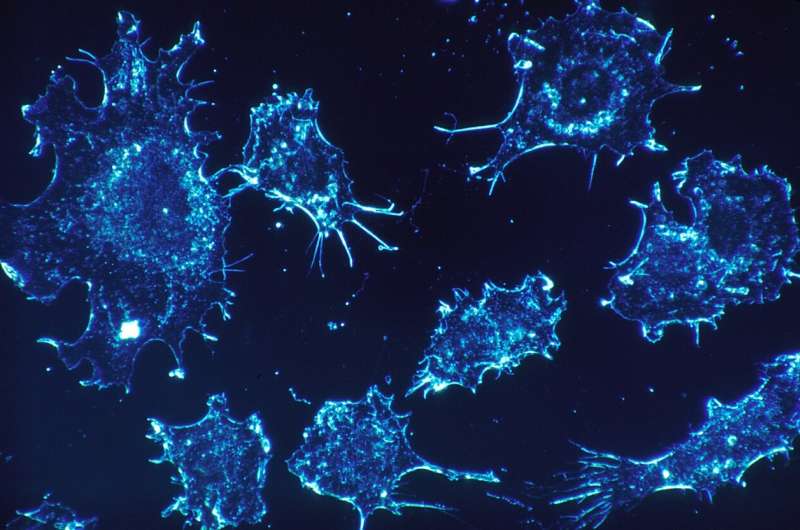Stressing cancer with spice

A new study by scientists in Japan and Indonesia reports how an experimental drug agent stops cancer cells from growing. A little over a decade ago, Indonesian scientists first reported pentagamavumon-1 (PGV-1), an analogue of a molecule found in turmeric and that has been since discovered to have anti-cancer effects. In the new study, tests on cancer cells and animals reveal that these anti-cancer effects come from PGV-1 inhibiting a series of enzymes responsible for the metabolism of reactive oxygen species. This finding is expected to clarify how modifications to PGV-1 will lead to its use for cancer treatment.
The popular spice turmeric has for centuries been used not just as a flavoring, but also as medicine, with history having shown it to have a number of anti-inflammatory and even anti-cancer benefits. These medicinal benefits come from the compound curcumin, which is commonly sold as an herbal supplement. Several studies have examined curcumin's anti-cancer properties, but the high doses required and poor understanding of the chemical process through which curcumin acts have limited these efforts.
The team of Professor Jun-ya Kato, at Nara Institute of Science and Technology (NAIST), had previously identified that curcumin acts on the same reactive oxygen species enzymes as its analogue, PGV-1. By suppressing the enzyme activity, reactive oxygen species are allowed to cause stress on cells, ultimately leading to cell death. Indeed, many anti-cancer drugs operate similarly, but sometimes with severe side-effects due to stress on healthy cells.
In the new study, Kato's team compared the effects of curcumin and PGV-1 on cancer, finding that they shared many of the same properties, but that PGV-1 did so at higher efficiency and lower dose.
"We found that PGV-1 arrests cells in the cell cycle at M phase" and that "it inhibits many ROS-metabolic enzymes," says Kato.
This arrest prevents the cancer cells from dividing, and the enzyme inhibition causes the cancer cells to die.
Intriguingly, PGV-1 was effective on numerous types of cancers. Moreover, when administered to mice injected with human cancer cells, the mice showed no evidence of the cancer and no side-effects. Furthermore, unlike some other anti-cancer drugs, the anti-cancer effects persisted even after the cessation of PGV-1 administration.
"Our results suggest that PGV-1 inhibits the enzyme activity more effectively in cancer cells than in normal cells. This may be the reason why PGV-1 selectively suppresses tumor cell proliferation with few effects on normal cells," notes Kato.
Scientists have long looked at the potential of curcumin to treat cancer. Kato believes PGV-1 could provide a breakthrough.
"Considering the high drug efficacy and low amount of side effects in animals, we propose that PGV-1 should be pharmaceutically developed as an orally administered drug for cancer," he says.
More information: Beni Lestari et al, Pentagamavunon-1 (PGV-1) inhibits ROS metabolic enzymes and suppresses tumor cell growth by inducing M phase (prometaphase) arrest and cell senescence, Scientific Reports (2019). DOI: 10.1038/s41598-019-51244-3















